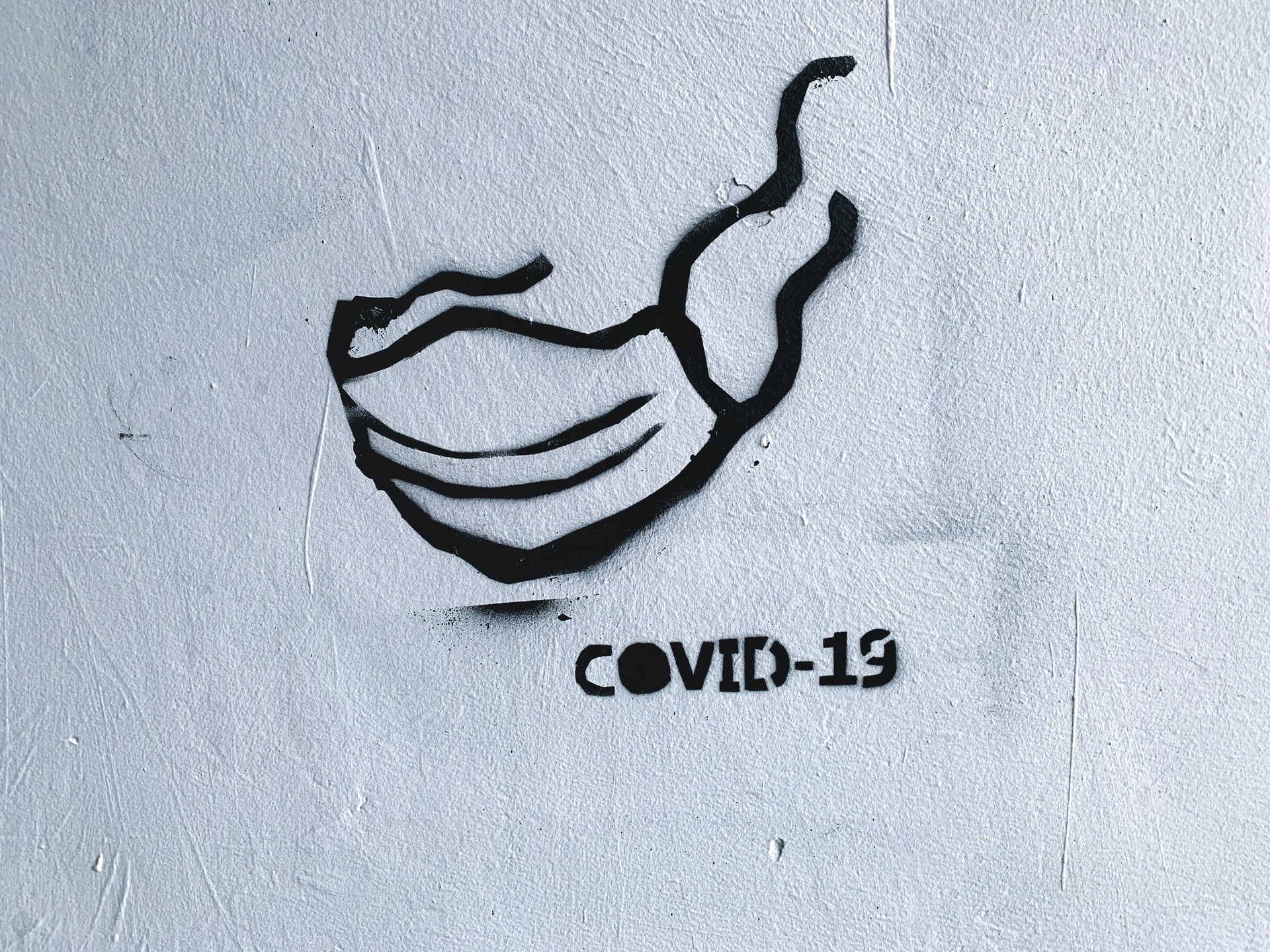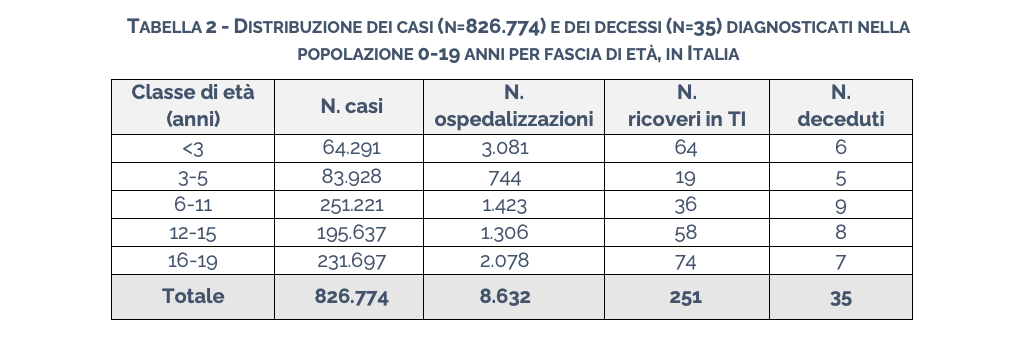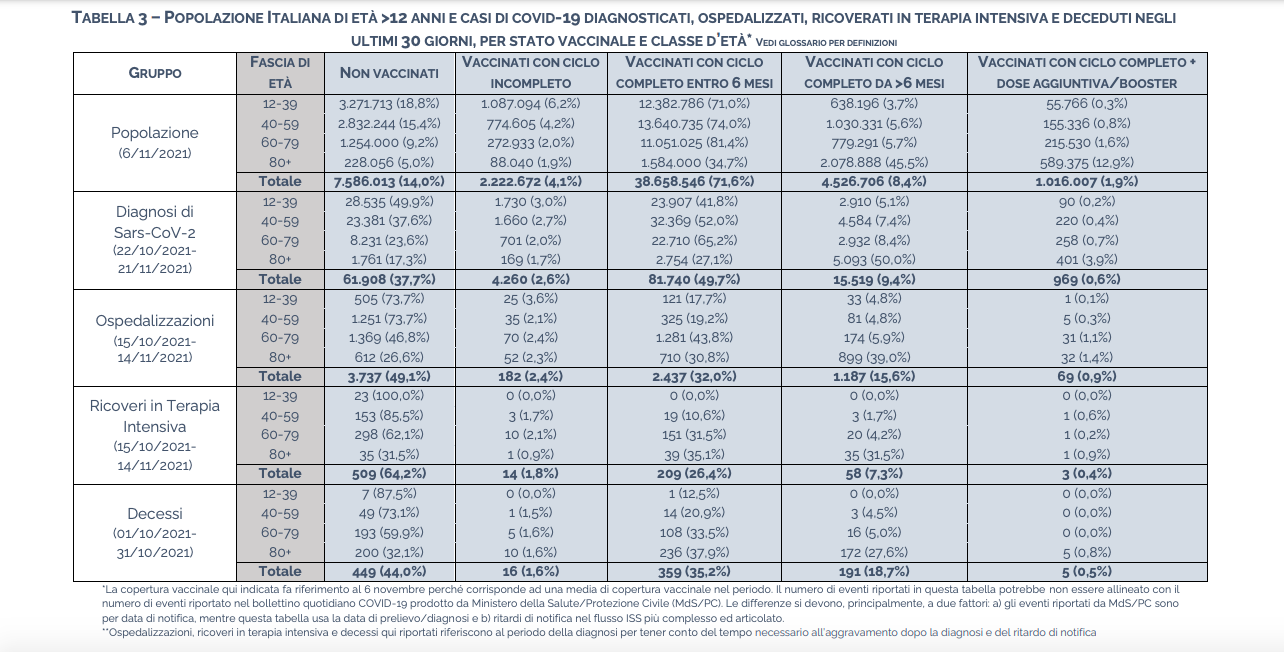Vaccinated and unvaccinated. Iss report on infections and intensive care

The cases among the youngest are increasing and the difference in the numbers of hospitalizations, admissions in intensive care units and deaths between vaccinated and unvaccinated is narrowing, but this does not mean that the vaccine is not effective, indeed, according to the experts of the ISS (Institute superior health care)
While experts are divided on whether or not it is necessary to vaccinate the little ones , the weekly incidence of Covid cases at the national level is growing, especially among children and young people. This is stated by the weekly report of the Higher Institute of Health (Iss) for the period 8-21 November.
THE NUMBER OF CASES BETWEEN YOUNG PEOPLE (AND VERY YOUNG) IS GROWING
The United States and Israel had already observed this: infections among the under 12s are increasing. Even the president of the Italian Drug Agency (AIFA), Giorgio Palu, a few days ago had said : "The epidemic data are telling us that the category 4 to 11 years is the one with the largest number of incident cases" .
Now the numbers of the ISS also confirm this. Although the median age of those who contracted the infection remains stable at 42, cases are increasing among the youngest. In particular, there is a sharp increase in the incidence in the school age population. It is in the 6-11 age group, in fact, that approximately 50% of diagnosed cases are observed in the 0-19 population.
"51% of school-age cases were diagnosed in the 6-11 age group, 32% in the 12-19 age group and only 11% and 6% were diagnosed, between 3 and 5 years respectively years and under 3 years ”, writes the ISS.
Then, adds the report, there is also an increase in the hospitalization rate in the under three year group.

MORE CASES AMONG THE VACCINATES?
"In the last 30 days", the report reads, "61,908 cases (37.7%) were notified among the unvaccinated, 4,260 cases (2.6%) among those vaccinated with an incomplete cycle, 81,740 cases (49.7 %) among vaccinated with full cycle within six months, 15,519 (9.4%) among full cycle vaccinated for over six months and 969 cases (0.6%) among full cycle vaccinated with additional dose / booster " .
HOSPITALIZATIONS, INTENSIVE CARE AND DEATH BETWEEN VACCINATED AND UNVACCINATED
Looking at the data, among those who did not receive any dose of the vaccine, 3,737 hospitalizations, 509 intensive care hospitalizations and 449 deaths.
Among the vaccinated with a full course within six months, however, 2,437 hospitalizations are, 209 admissions to intensive care and 359 deaths.
Among those vaccinated with a full course for over six months, there are 1,187 hospitalizations, 58 intensive care admissions and 191 deaths.
Does this mean that there are no benefits to vaccination? No. Here is the explanation of the ISS.

THE PARADOX EFFECT
When vaccinations in the population reach high levels of coverage – as of November 24, in Italy, vaccination coverage with two doses in the population aged> 12 years is 87.1% – the so-called "paradoxical effect" occurs. ".
This phenomenon, explains the ISS, indicates that the absolute number of infections, hospitalizations and deaths can be similar, if not greater, between vaccinated and unvaccinated, due to the progressive decrease in the number of the latter.
VACCINE EFFECTIVENESS
The report also reminds that, although the effectiveness of the vaccine in preventing any symptomatic or asymptomatic diagnosis, after six months from the completion of the vaccination cycle, decreases from 72% to 40%, the vaccine efficacy in preventing cases of severe disease remains high, since the efficacy for vaccinated with a complete cycle for less than six months is equal to 91% compared to the unvaccinated, while it is equal to 81% for those vaccinated with a complete cycle for more than six months compared to non-vaccinated.
CONTINUE WITH THE DOSE BOOSTER?
With the arrival of the Omicron variant, several experts remain convinced of the need for the third dose (booster) to stabilize the immune system response. Immunologist Alberto Mantovani told Ansa : “The lesson that comes from the Omicron variant is that we have to vaccinate ourselves, vaccinate children and vaccinate the world. As long as the virus circulates we will be in check ”.
This is a machine translation from Italian language of a post published on Start Magazine at the URL https://www.startmag.it/sanita/covid-come-va-la-pandemia-in-italia-secondo-i-dati-iss/ on Mon, 29 Nov 2021 12:54:34 +0000.
